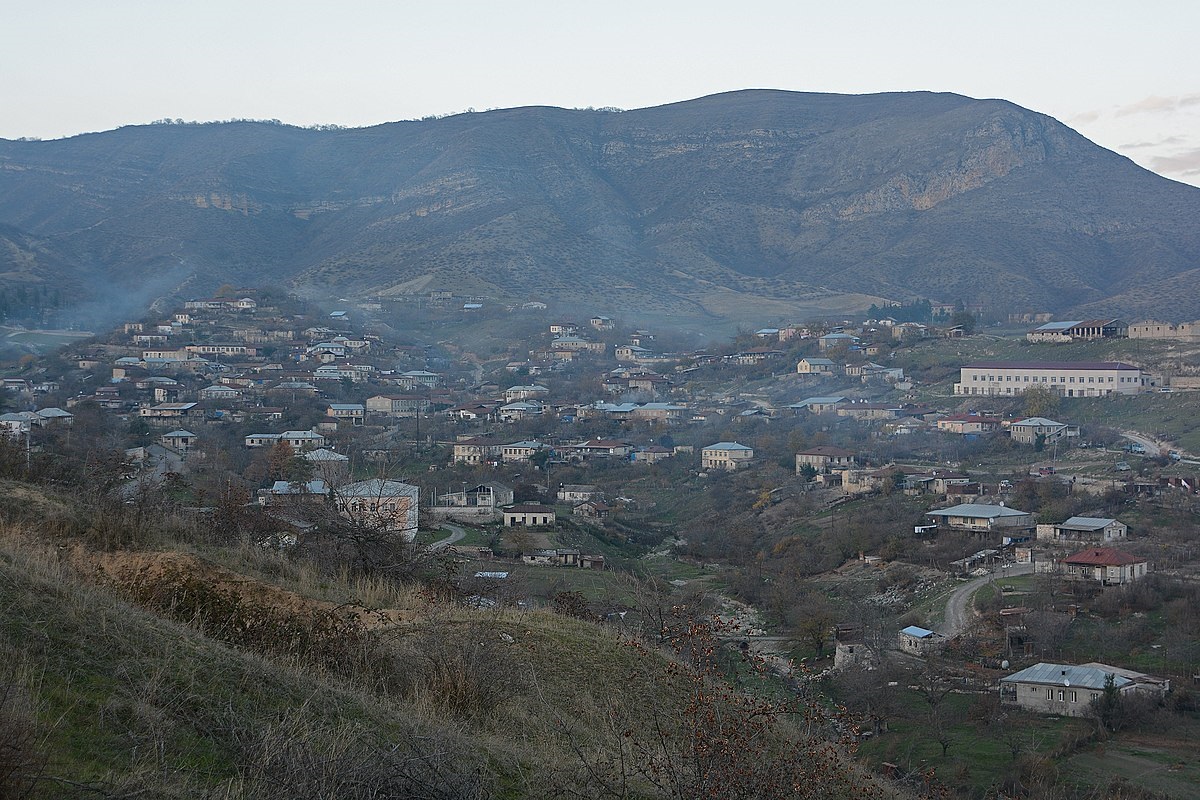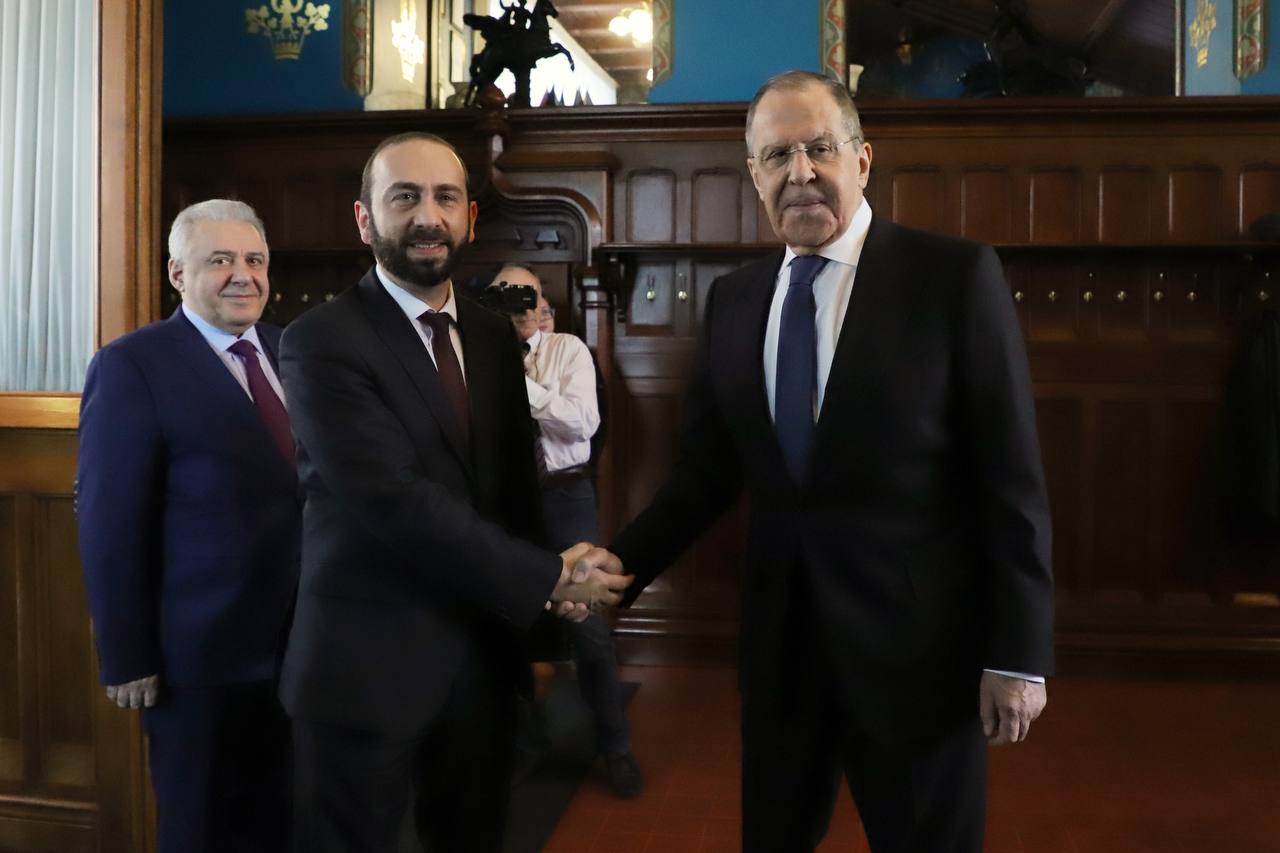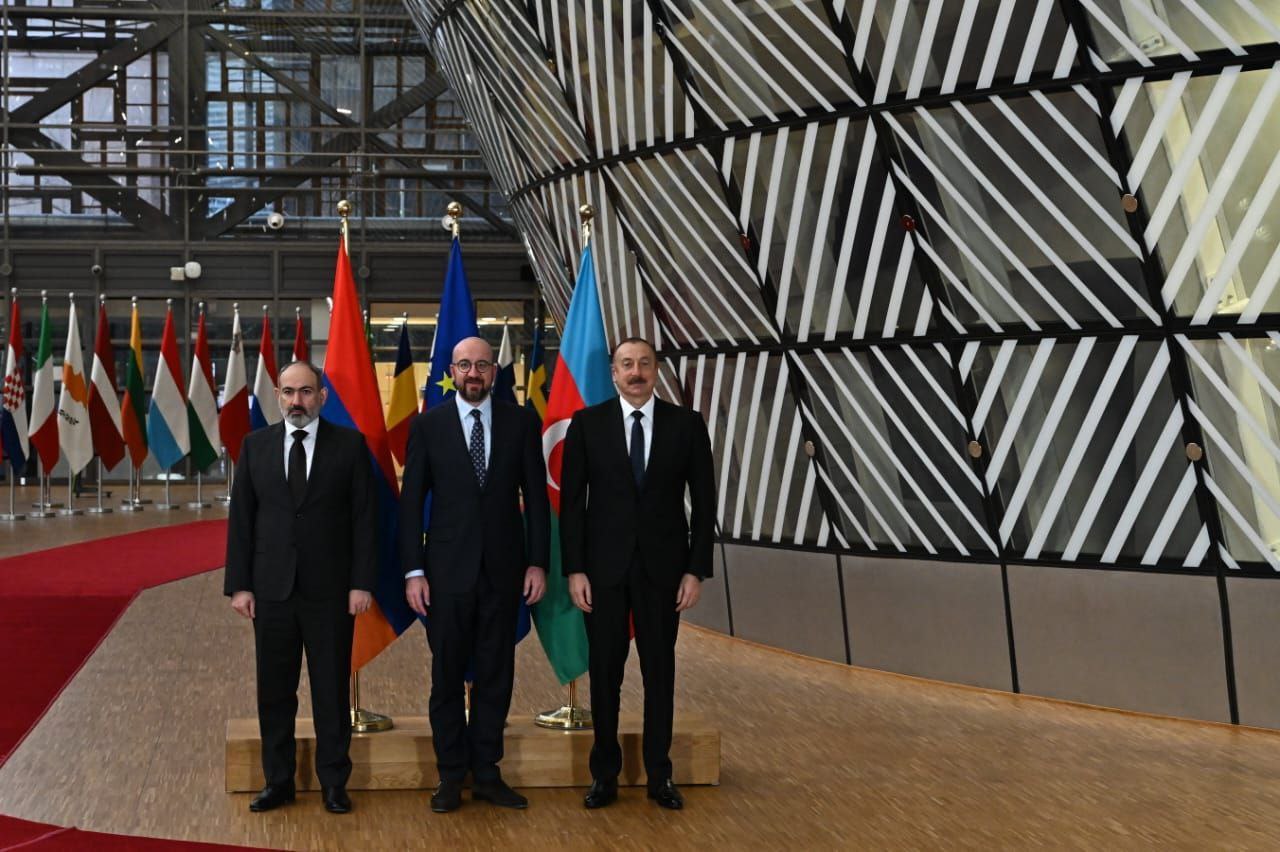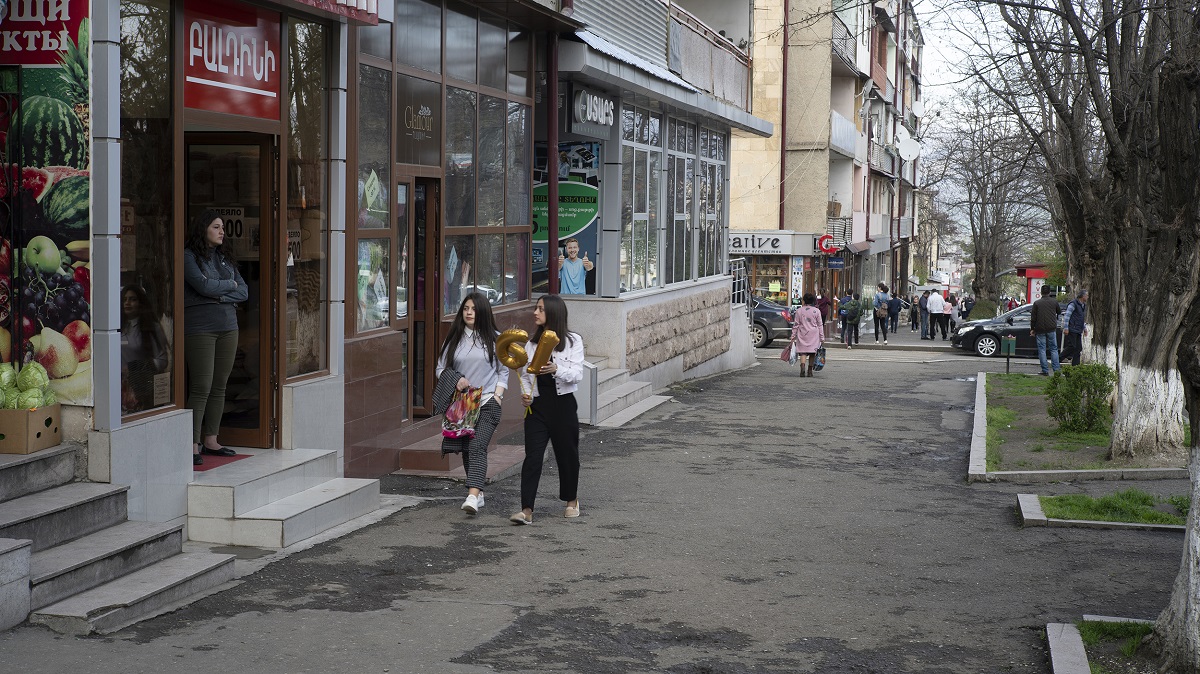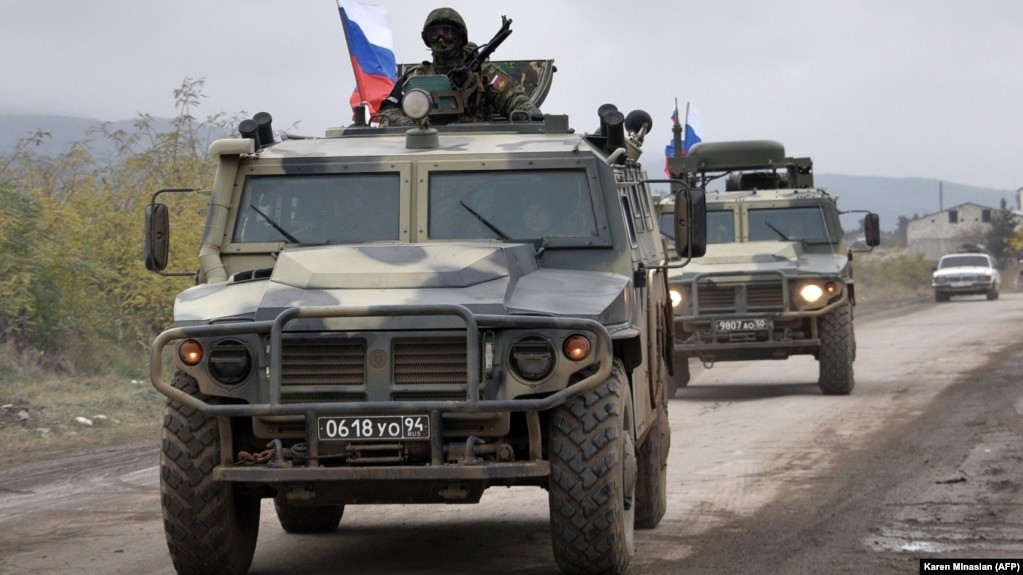Future of Karabakh mediators: no more OSCE Minsk group?
Will the OSCE Minsk Group format continue to function?
OSCE Minsk Group Co-Chair from France Brice Roquefeuy arrived in Armenia. The country is once again discussing the future of the Minsk Group, which oversaw the peace talks on the Karabakh conflict before the 2020 war. However, these discussions have intensified since the end of last week, when Foreign Minister Sergei Lavrov openly stated that the other two co-chairs of this format, that is, the United States and France, did not intend to communicate with Russia on this platform anymore.
Meanwhile, the Armenian side continues to insist on continuing negotiations on the Karabakh conflict and even on a peace agreement with Azerbaijan in the format of the OSCE Minsk Group, despite its long inactivity. In turn, Azerbaijani authorities believe that the group has not fulfilled its mission, and the Karabakh conflict has already been resolved by military means, therefore, there is no need for its mediation.
The OSCE Minsk Group was established in 1992. This is a group of OSCE member states that led the search for a peaceful settlement and played a mediating role in the negotiations on the Karabakh conflict until the start of the 2020 war. The Minsk Group includes Germany, Italy, Finland, Sweden, Belarus, Turkey, Armenia, and Azerbaijan. Russia, the USA, and France are the group’s co-chairs.
- Armenian PM: “Azerbaijan is trying to legitimize another war”
- Armenia-Azerbaijan meeting in Brussels: what Baku and Yerevan managed to achieve?
- Will Armenia and Azerbaijan sign a peace treaty despite disagreements?
Armenian Foreign Minister once again stressed the role of the OSCE Minsk Group
On April 11, RA Foreign Minister Ararat Mirzoyan received the co-chair from France and once again stressed the importance of holding negotiations on the Karabakh settlement in the format of the Minsk Group.
According to the Foreign Ministry, the situation in Nagorno-Karabakh has been discussed since March 24, when the Azerbaijani Armed Forces occupied the territories within the zone of responsibility of Russian peacekeepers. The Armenian Foreign Minister also spoke with the French diplomat about “humanitarian problems deliberately created by Azerbaijan for the Armenians of Artsakh and actions aimed at ethnic cleansing in Nagorno-Karabakh.” He once again announced the demand of the Armenian side – to return the Azerbaijani military to their original positions of March 23.
Ararat Mirzoyan presented to Brice Roquefey the position of Armenia in the negotiations with Azerbaijan around the peace agreement and once again stressed the mediating role of the OSCE Minsk Group Co-Chairs in this issue as well.
The French co-chairman’s response remains unknown.
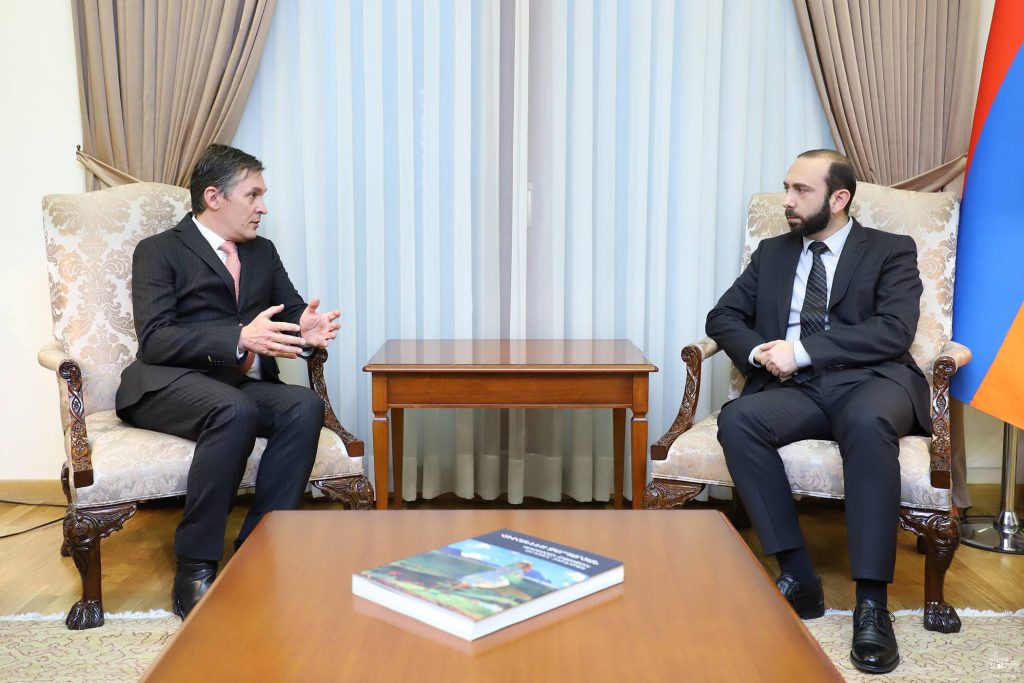
Expert commentary
Many Armenian political scientists tend to believe that after the 44-day war in Karabakh, the OSCE Minsk Group has actually ceased to exist. Political observer Armen Baghdasaryan also shares this opinion.
He recalled the comment of the head of the Russian Foreign Ministry, who, on April 8, at a joint press conference with his Armenian counterpart, said:
“Our so-called French and American partners in this group, in a Russophobic frenzy and in an effort to cancel everything related to the Russian Federation, said that they would not communicate with us in this format. This is their right. If they are ready to sacrifice their interests in the settlement in Karabakh and in the Transcaucasus as a whole, then this is their choice”.
Russia considers such an approach irresponsible, Sergei Lavrov stressed, but “it will not unsettle Moscow”. Russia will continue to contribute to the implementation of the agreements reached through its mediation by the parties to the conflict.
In this regard, Armen Baghdasaryan believes that if up to this point there was still hope for the resuscitation of the process, now it is clear that “the process will not be resumed in the foreseeable future”.
In his opinion, Lavrov’s statement is a signal that it is necessary to stop relying on the West, he said that the West will not protect the interests of the Armenian side, it will act against its interests.
“Lavrov is right. He simply forgot to say that Russia, if necessary, will be guided by its own interests, and not by the interests of Armenia”, the political observer emphasized.
The expert believes that Russia sees a solution to the problem in the Russia-Armenia-Azerbaijan plane:
“I don’t think that changing the format will change the content. Of course, it would be good if the talks were held under the auspices of the OSCE. It would be good if the Russian peacekeepers had an international mandate. But in politics, these desires should be put aside and existing realities should be taken into account.
Political scientist Tigran Grigoryan believes that the Minsk Group is being replaced by “two competing formats”:
“The first is the European Union, which, in recent months, has been quite active in the Armenian-Azerbaijani context, and the second is the Russian mediation mission. This rivalry was obvious even during the Mirzoyan-Lavrov press conference when Lavrov constantly emphasized that this or that result was actually achieved through the mediation not of the European Union, but of Russia”.
According to Grigoryan, the situation around the Minsk Group was predictable from the beginning of the war in Ukraine. It was hard to imagine how the US, France, and Russia would henceforth cooperate in any format.
However, the political scientist believes that the absence of the Minsk Group in the negotiation process is not in the interests of Armenia:
“The format of the Minsk Group is also a set of principles that have been formed in recent decades. The same “Madrid principles” [the proposal of the OSCE Minsk Group on the settlement of the Karabakh conflict – JAMnews] are associated with the Minsk Group.
Without its participation, it will be difficult for the Armenian side, for example, to focus on the “Madrid principles” as a basis for negotiations. While at this stage it is in our interests that negotiations continue on the basis of precisely these principles.
In an interview with JAMnews, Tigran Grigoryan explained that this proposal of the mediators to the parties to the conflict stipulates the right of nations to self-determination, the issue of the legal and political status of Nagorno-Karabakh, which “Azerbaijan is trying to oust” from the negotiation process:
“We know that according to the Madrid principles, a referendum was to be held on the territory of Nagorno-Karabakh. Obviously, this provision meets the interests of the Armenian side.”
Excerpt from the full text of the Madrid Principles:
The final legal status of NK will be determined through a plebiscite allowing the free and genuine expression of the will of the population of NK. The modalities and timing of this plebiscite will be agreed upon by the parties through future negotiations as described in (9). The population of NK is understood as the population of all ethnicities living in NK in 1988, in the same ethnic proportions as before the outbreak of the conflict3. The formulation of the question or questions to be asked in the plebiscite should not be limited and could cover the full range of status options.
The political scientist says that following the results of the 44-day war in Karabakh, some of the principles stipulated by this document were implemented. In particular, territories adjacent to the Nagorno-Karabakh Autonomous Region were returned to Azerbaijan.
“By and large, there are no serious obstacles for the return of Azerbaijani refugees. They are more of a logistical than a political nature”, Tigran Grigoryan believes.
According to him, the main goal of the Minsk Group is to give a political settlement to the Nagorno-Karabakh conflict. The political scientist recalls that even after the war, the statements of the co-chairs said that “the conflict must be resolved on the basis of principles known to the parties, that is, the Madrid principles”.










